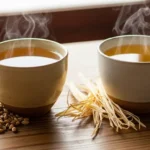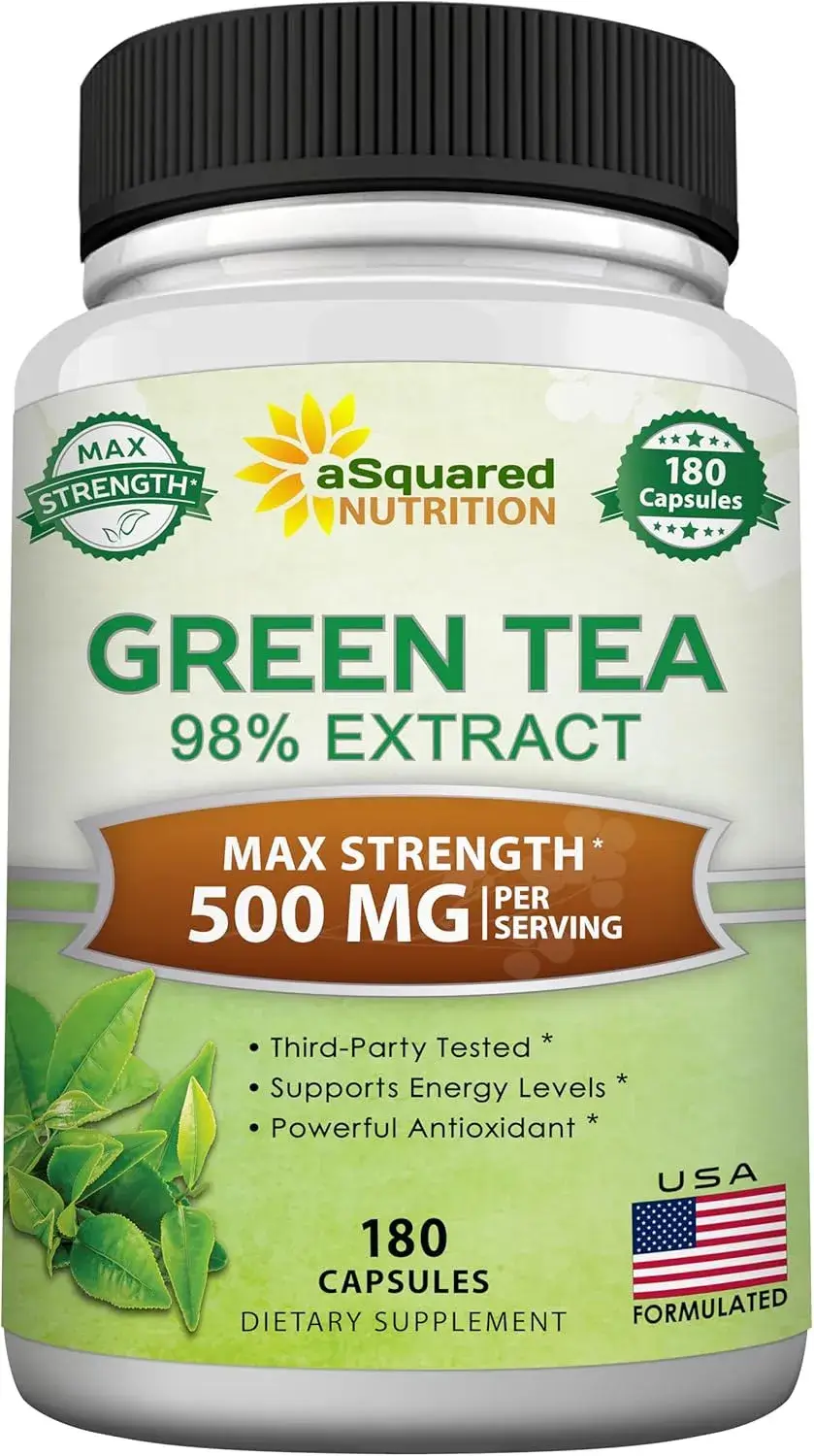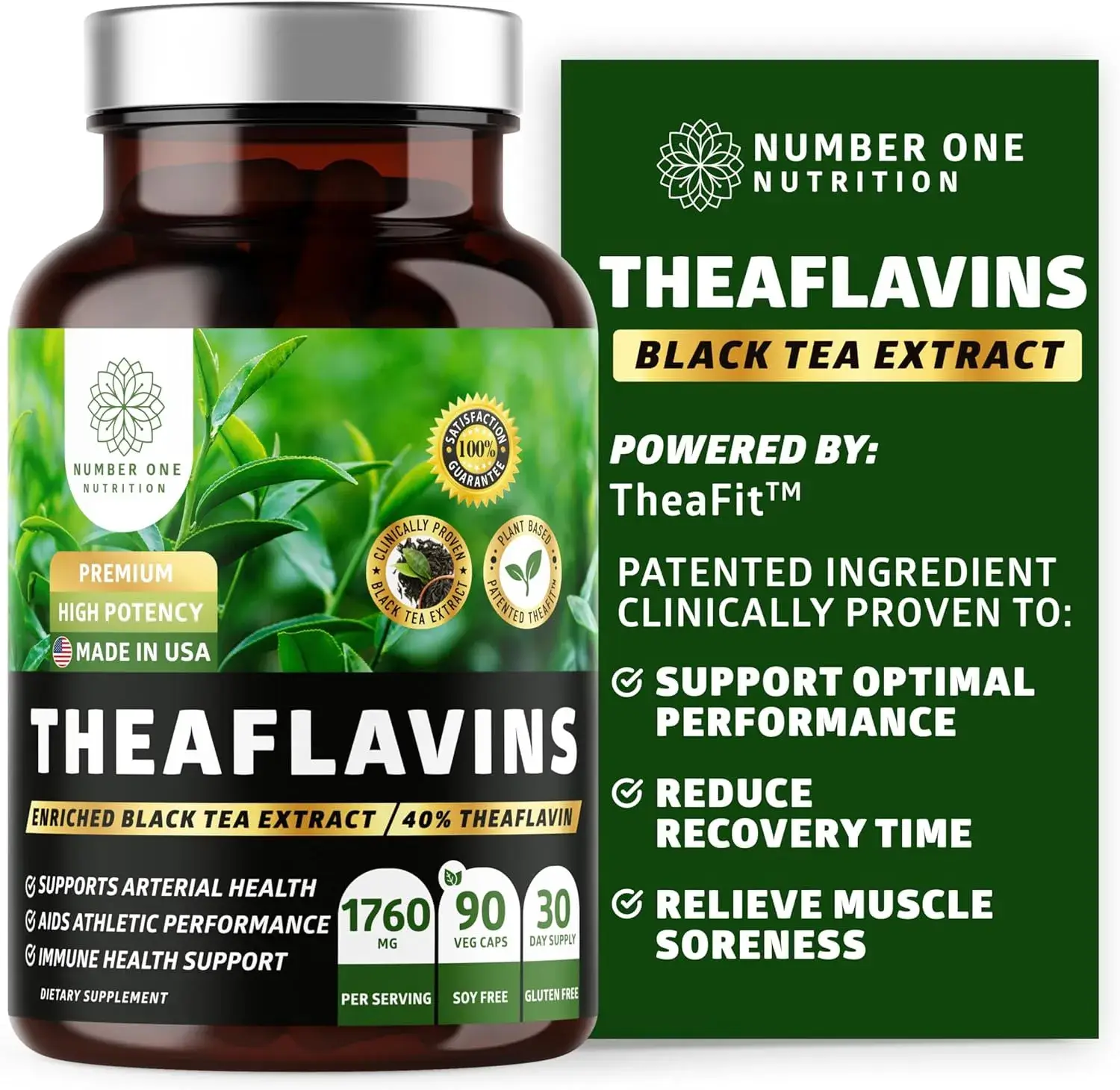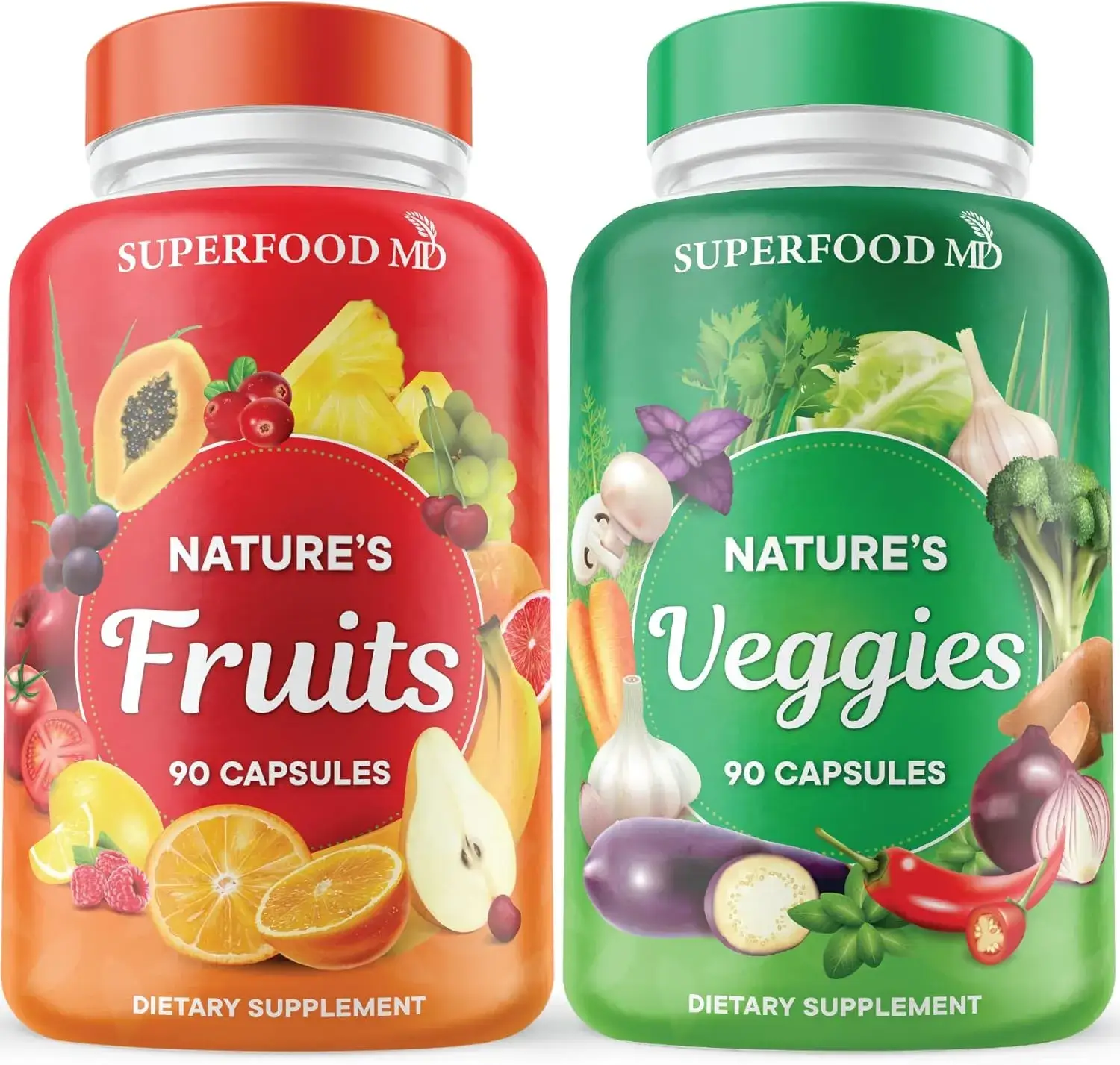Table of Contents
So, you’re curious about how to fit green tea into your day, maybe even three times? It’s more than just a drink; it can be a nice little ritual. Whether you’re trying to focus in the morning, get a little boost before a workout, or just unwind in the evening, there’s a way to enjoy it. We’ll look at when to drink it, what kind to pick, and how to make sure you’re getting the most out of your cups. It’s all about finding what works for you and your routine.
Key Takeaways
- Drinking green tea 3 times a day can offer a good balance of benefits and caffeine. Aiming for three to five cups daily is generally considered safe for most people.
- The morning is a great time for green tea to help with focus, thanks to the combo of L-theanine and caffeine, which boosts alertness without the jitters.
- Having green tea before exercise might help burn more fat, and it could also help with recovery afterward.
- For an afternoon pick-me-up, green tea can help with productivity and keep your energy steady without a big crash.
- Enjoying green tea in the evening, especially lower-caffeine options like Hojicha, can be a relaxing way to end the day and may help with digestion.
Morning Rituals for Enhanced Focus
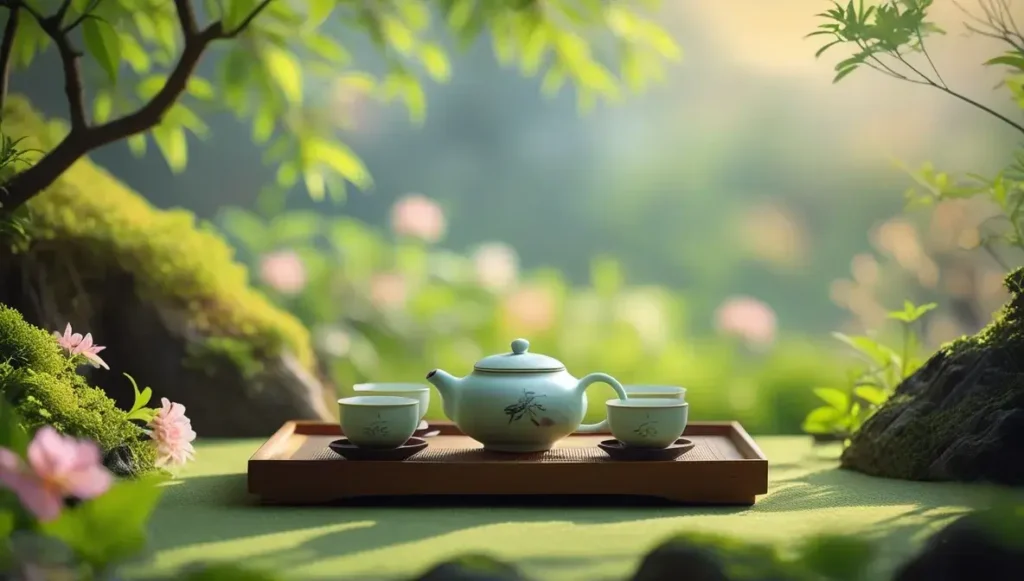
Starting your day with a warm cup of green tea can really set a positive tone. It’s not just about waking up; it’s about doing it with a bit more clarity and calm. Many people reach for coffee, but green tea offers a different kind of wake-up call. It’s got caffeine, sure, but it also has this amino acid called L-theanine. Together, they’re like a gentle nudge for your brain, helping you feel more alert without that shaky feeling coffee can sometimes bring. Think of it as getting your mental gears turning smoothly.
The Calming Power of L-Theanine and Caffeine
So, what’s the deal with L-theanine? It’s an amino acid that’s pretty unique to tea. It works with the caffeine to smooth out the stimulation. Instead of a sudden jolt, you get a more sustained focus. It’s also known for promoting a sense of relaxation. So, you get the alertness from caffeine, but the L-theanine helps keep the jitters away. It’s a pretty neat combination that can make your morning feel more productive and less frantic.
Boosting Alertness Without Jitters
Green tea typically has less caffeine than coffee. For an 8-ounce cup, you’re looking at about 30-50 milligrams, while coffee can have 80-100 milligrams. This lower amount, combined with L-theanine, means you can feel more awake and ready to tackle your day without that anxious, on-edge feeling. It’s a more balanced way to get your morning energy boost. You might find yourself more focused on tasks rather than just feeling wired.
Starting Your Day with Clarity
Making green tea a part of your morning routine can really help clear the mental fog. The L-theanine and caffeine combo is thought to improve brain function, helping with attention and concentration. It’s like giving your brain a clean slate for the day. This can translate into better problem-solving and a generally sharper mind as you get into your work or daily activities. It’s a simple habit that can make a noticeable difference in how you approach your day.
👉 Discover the Best Premium Green Tea Blend for You Today 👈
Optimizing Green Tea Consumption Around Exercise
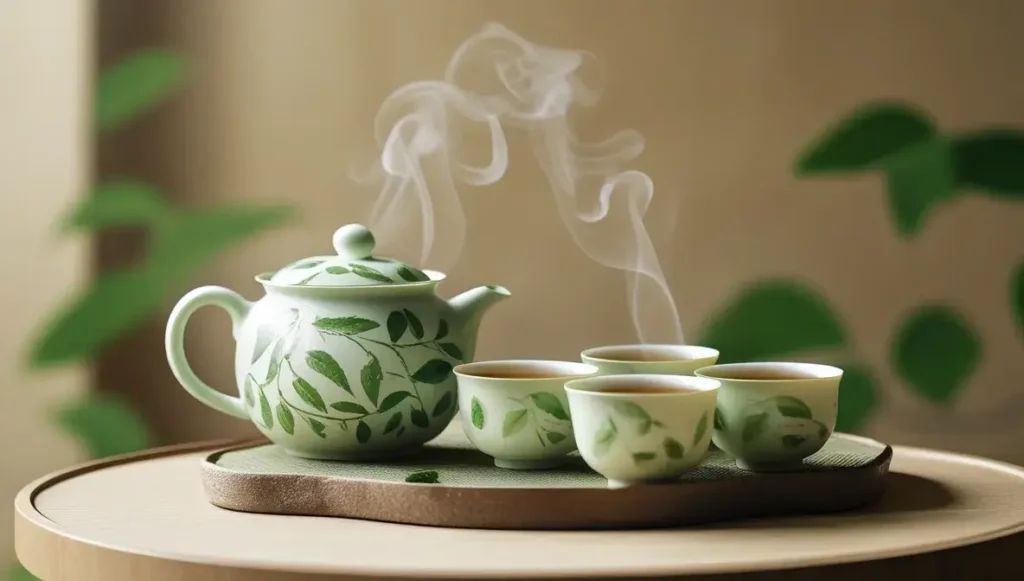
When you’re hitting the gym or going for a run, timing your green tea can make a difference. Some studies suggest that drinking green tea before a workout might help your body burn more fat. One study showed a 17% increase in fat burning when participants had green tea extract before exercising. Another study found that drinking green tea the day before and a couple of hours before a workout also boosted fat burning during the activity. It’s not just about burning fat, though. Green tea might also help you recover faster after a tough session. Research indicates that green tea extract can reduce some of the muscle damage that happens during exercise.
Pre-Workout Fat Burning Potential
Drinking green tea before you exercise could potentially increase your body’s fat-burning capabilities. The compounds in green tea, particularly catechins, are thought to play a role in this. It’s a simple addition to your routine that might give your workout an extra edge.
Accelerating Post-Exercise Recovery
After a strenuous workout, your muscles can feel the strain. Green tea may help speed up the recovery process. Studies have shown that it can reduce markers of muscle damage, meaning you might feel less sore and ready to go sooner for your next training session.
Fueling Your Fitness Routine
Incorporating green tea into your fitness routine is straightforward. Consider having a cup about an hour before your workout to potentially tap into its fat-burning effects. Post-workout, another cup can aid in recovery. This makes green tea a versatile beverage for supporting your fitness goals. Remember, consistency is key, so finding an optimal green tea consumption schedule that fits your workout plan is important for seeing potential benefits.
Afternoon Refreshment and Cognitive Support
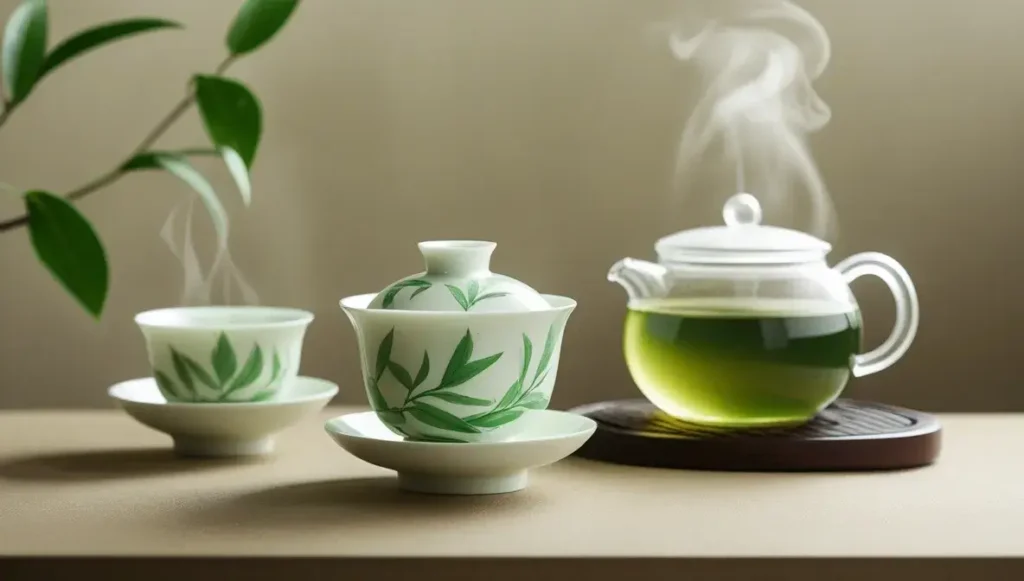
Feeling that afternoon slump? Instead of reaching for another sugary drink or a second cup of coffee that might keep you up later, consider a warm cup of green tea. It’s a fantastic way to reset your focus and get back to your tasks without the harsh side effects. The unique combination of caffeine and L-theanine in green tea works together to give you a gentle lift, helping you stay alert and sharp. It’s like a mental tune-up for your brain, making those afternoon hours much more productive.
A Midday Boost for Productivity
When your energy dips around 2 or 3 PM, a cup of green tea can be a real game-changer. The caffeine provides a mild stimulant effect, waking up your brain, while L-theanine, an amino acid also present, helps to smooth out that stimulation. This means you get increased alertness and better focus, but without the jitters or the eventual crash you might get from coffee. It helps clear away that foggy feeling and lets you tackle the rest of your workday with renewed concentration.
Sustaining Energy Levels
Unlike coffee, which can give you a quick spike followed by a drop, green tea offers a more sustained release of energy. This is thanks to the way caffeine and L-theanine interact. You’ll feel more consistently alert and less prone to those sudden energy crashes that can derail your afternoon. It’s about maintaining a steady, productive flow rather than a rollercoaster ride of energy.
Choosing the Right Green Tea Style
There are so many types of green tea, and they all have slightly different flavor profiles and caffeine levels. For a midday pick-me-up, you might enjoy a Sencha, which is a popular Japanese green tea known for its balanced, slightly grassy flavor. Or perhaps a Gyokuro, a shade-grown tea with a richer, more umami taste, which also tends to have a good amount of caffeine. If you’re sensitive to caffeine but still want that mental boost, a Bancha, which is harvested later in the season and has lower caffeine, could be a good choice. Experimenting with different styles can help you find your perfect afternoon companion.
👉 Unlock Your Energy with Our Top-Rated Premium Green Tea 👈
Evening Enjoyment and Digestive Aid
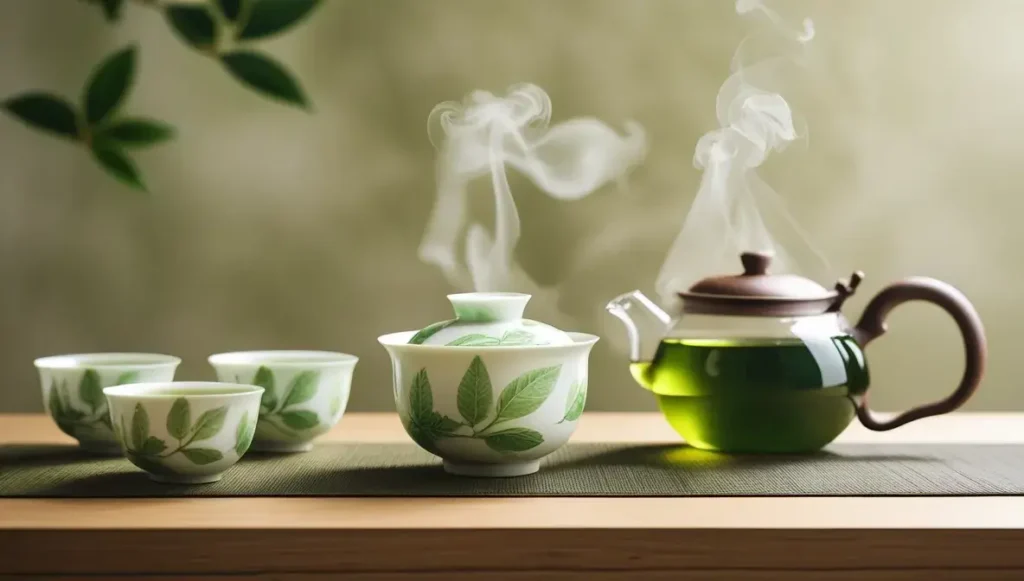
Winding Down with a Soothing Brew
As the day winds down, a warm cup of green tea can be a wonderfully calming ritual. It’s a gentle way to transition from the busy day to a more relaxed evening. The natural compounds in green tea, particularly L-theanine, are known for their ability to promote a sense of calm without causing drowsiness. This makes it an ideal companion for quiet evenings, perhaps while reading a book or simply unwinding.
Supporting Digestion After Meals
Many people find that a cup of green tea after a meal aids their digestion. The tea can help stimulate digestive processes, making you feel more comfortable after eating. It’s a natural way to support your body’s functions without reaching for something artificial. Some research even suggests that green tea can positively influence the gut microbiome, encouraging the growth of beneficial bacteria.
Low-Caffeine Options for Evening
If you’re sensitive to caffeine or simply want to avoid it before bed, there are excellent low-caffeine green tea options. Hojicha, for instance, is a roasted green tea that naturally has much less caffeine than other varieties. Its toasty, slightly sweet flavor makes it a comforting choice for the evening. Genmaicha, a blend of green tea and roasted rice, also tends to be lower in caffeine and offers a unique, nutty taste. These teas provide the enjoyable ritual of a warm beverage without the stimulating effects that might interfere with sleep.
Understanding the Benefits of Three Cups Daily
So, you’re curious about what happens when you sip on green tea three times a day? It turns out, there’s a sweet spot for enjoying its perks without going overboard. Most folks can easily fit three to five cups into their daily routine and feel pretty good about it. Think of it as a gentle nudge for your body and mind, rather than a full-on shove.
Achieving Optimal Health Benefits
When you drink green tea regularly, you’re giving your body a dose of antioxidants, like EGCG. These little helpers are thought to protect your cells from damage, which could play a role in keeping chronic diseases at bay. Some studies even hint that it might help with things like reducing inflammation and maybe even lowering the risk of certain cancers or heart issues. It’s not a magic bullet, of course, but it’s a nice addition to a healthy lifestyle. The benefits of drinking green tea daily are subtle but can add up over time.
The Safe Zone for Daily Consumption
Most of the research suggests that drinking around three to five cups (about 24 to 40 ounces) daily is generally safe and potentially beneficial for many people. It’s a good amount to get some of those good compounds without overdoing it. Remember, everyone’s different, so pay attention to how your body feels.
Balancing Caffeine Intake
Green tea does have caffeine, though usually less than coffee. A typical cup might have 30-50 milligrams. If you’re sensitive to caffeine, three cups might be your limit. Too much caffeine can lead to feeling jittery, anxious, or having trouble sleeping. It’s all about finding that balance that works for you, so you get the good stuff without the unwanted side effects. If you’re aiming for three cups, just be mindful of your total daily caffeine intake from all sources.
👉 Elevate Your Health with the Best Organic Green Tea Blend 👈
Flavorful Ways to Enjoy Green Tea
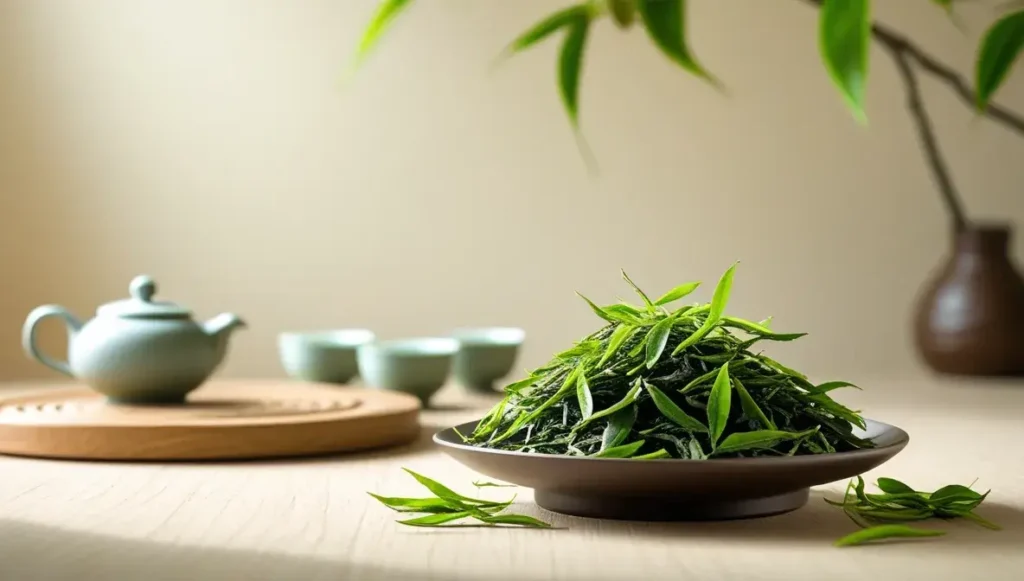
Green tea is pretty amazing, right? It’s not just about the health perks; it’s also about how you can actually enjoy drinking it. Forget just gulping it down. There are so many ways to make your daily cups a real treat, depending on your mood, the time of day, or just what you’re craving.
Think about it: a warm, comforting cup on a chilly morning, or a refreshing iced version when the afternoon slump hits. It’s all about finding what works for you.
The beauty of green tea lies in its versatility. You can tailor the experience to match your personal preferences and daily rhythm, making each cup a unique moment of enjoyment.
Let’s explore some of these delightful possibilities.
Exploring Different Green Tea Styles
Different green teas have their own personalities, and knowing them can really change how you experience your brew. For instance, Gyokuro is a super premium Japanese tea. It’s known for its deep, savory umami flavor, and most people find it best enjoyed simply, with just warm water. It’s a luxurious tea, perfect for those moments when you want to really slow down and appreciate the taste.
Then there’s Hojicha. This one is different because it’s roasted, giving it a toasty, malty flavor that’s much less bitter than many other green teas. It’s great if you’re sensitive to caffeine or just want something soothing. You can drink it hot or iced, and it’s even good for digestion after a meal. Plus, it makes a fantastic latte if you add a splash of milk and maybe a touch of sweetener.
And we can’t forget Genmaicha. This is a blend of green tea with roasted rice. It has a lovely nutty taste and is usually lower in caffeine, making it a good choice for any time of day. It’s got a comforting, balanced sweetness that’s really pleasant, especially if you’re trying out different Japanese green teas.
Personalizing Your Brew
So, how do you make these teas your own? It really comes down to what you like. Are you someone who needs a morning kick? Maybe a matcha latte, with its creamy texture and caffeine boost, is your go-to. If you’re sensitive to caffeine, you might prefer a Hojicha latte in the afternoon or evening.
Consider your lifestyle too. If you’re always on the go, an iced green tea might be more practical. If you’re looking for a moment of calm, a hot, simple brew of Sencha or Gyokuro could be just the thing. Don’t be afraid to experiment with adding a little honey, a splash of almond milk, or even some fresh mint. The goal is to find what makes you happy.
The Art of Steeping Green Tea
Steeping is where the magic happens, and a few small adjustments can make a big difference. For most green teas, like Sencha, using water that’s not boiling is key. Aim for around 160-175°F. If you use cooler water, you’ll want to steep it a bit longer to get those sweet notes. Hotter water and a shorter steep time will bring out more of the bright, savory flavors.
Here’s a quick guide:
- Sencha: Water around 170°F. Steep for 1-2 minutes for sweetness, or 30-60 seconds for brighter notes.
- Gyokuro: Use cooler water, about 140-150°F, and steep for 1-2 minutes. This really brings out the umami.
- Hojicha: You can use hotter water, even close to boiling, and steep for 1-3 minutes. It’s pretty forgiving.
- Matcha: Whisk the powder with a small amount of warm water (not hot!) to make a paste, then add more water and whisk until frothy.
Remember, these are just starting points. The best way to steep is the way that tastes best to you. Don’t be afraid to play around with the temperature and time until you find your perfect cup.
Wrapping Up Your Green Tea 3 Times a Day Ritual
So, there you have it. Making green tea a part of your day, maybe three times, can be a pretty nice routine. It’s not about strict rules, but more about finding what feels good for you. Whether it’s a morning wake-up, an afternoon pick-me-up, or something to enjoy after dinner, green tea offers a simple way to add a little something pleasant to your day. Remember to keep it balanced, maybe skip the extra sugar, and just enjoy the process. Cheers to your new habit!
👉 Grab the Premium Green Tea That Everyone’s Talking About Now 👈
Frequently Asked Questions
Is it okay to drink green tea every day?
Most people can safely drink green tea every day. Drinking about three to five cups daily is usually a good amount to get the health benefits without too many downsides. It’s best to drink it in the morning or early afternoon so the caffeine doesn’t mess with your sleep. Drinking it an hour or two after meals can also help with digestion.
Does green tea affect blood pressure?
Yes, studies show that green tea can actually help lower blood pressure. One study found it helped lower blood pressure in people who had slightly high blood pressure.
Who should avoid drinking green tea?
People who have certain health issues, like anxiety or trouble sleeping, might want to be careful with green tea because of the caffeine. Also, if you’re sensitive to caffeine, it’s a good idea to limit how much you drink.
How does green tea help with focus and energy?
Green tea has caffeine, which can give you a gentle energy boost and help you focus. It also has an amino acid called L-theanine, which helps you feel calm. Together, they can make you feel more alert and focused without making you feel shaky or anxious like coffee sometimes can.
Can green tea help with workouts?
Drinking green tea before exercise might help your body burn more fat. It might also help your muscles recover faster after a tough workout.
What are the main health benefits of drinking green tea?
Green tea is full of antioxidants, which are good for your body. These can help protect your cells from damage and might lower your risk of getting certain diseases like heart problems. Some studies even suggest it could help you live longer!




